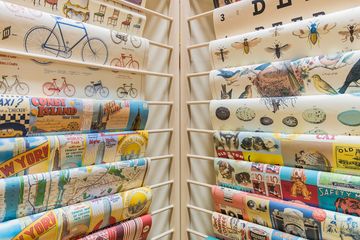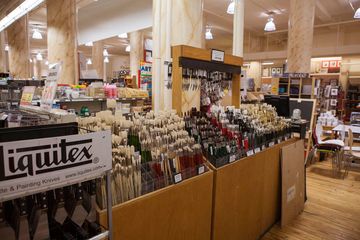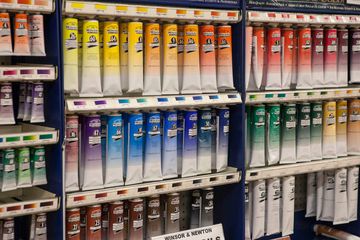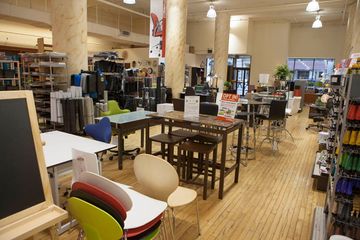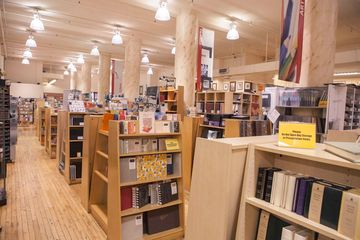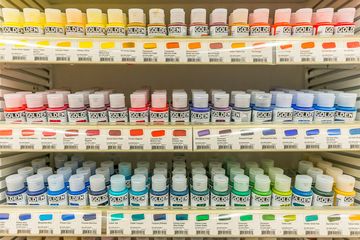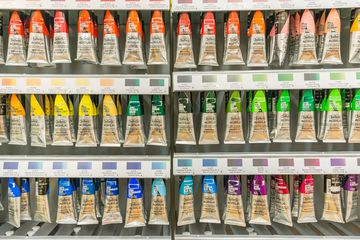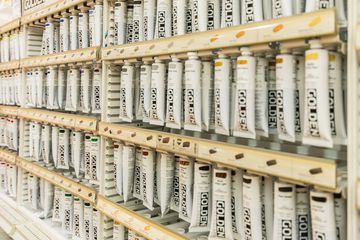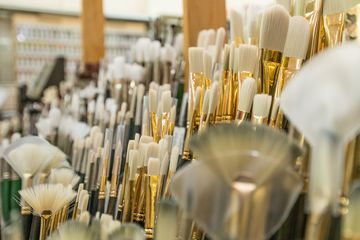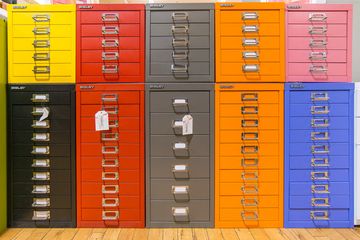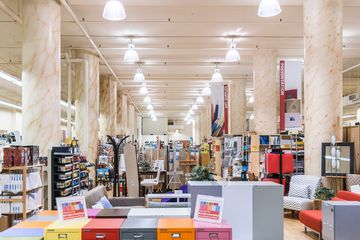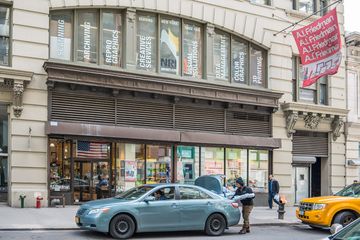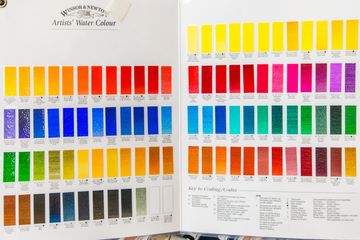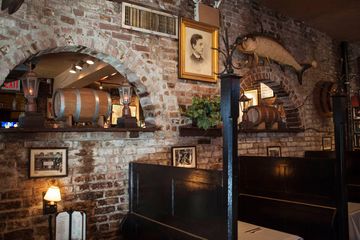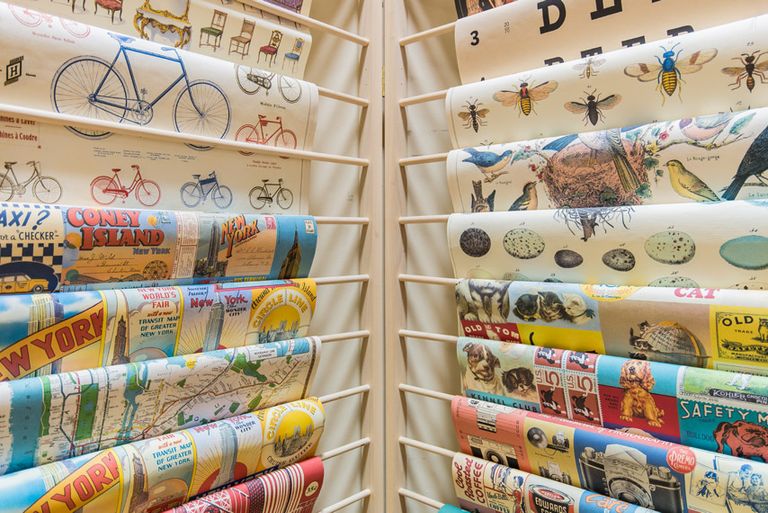
My kids grew up with this department store of creative art supplies in Westchester. It was their go-to place for every school project they encountered as well as for birthday gifts each year. As they got older and art became their passion, we visited here often to take classes and to purchase items for their own drawing and painting. When we moved to Manhattan, we were delighted to learn that they have a store on 18th Street.
A.I. Friedman moved to 18th Street after residing on West 45th for nearly fifty years. Using borrowed capital from an uncle, A.I. Friedman opened his shop in a fourth floor loft. The original founders made makeshift stock shelves using old packing cases. Their first customers were not families like ours, but rather professional clients, including free-lance artists, advertising agencies, illustrators, and newspapers. The store struggled over the years, especially during World War II, when the only people looking to buy art supplies were in the army. Agencies such as the Office of War Information employed graphic designers to produce magazines, propaganda, and posters. A.I. Friedman recognized this opportunity and began shipping art supplies to the battlefields. Once the war ended, the store began reaching greater success, which eventually propelled them to open a second store in 1974. They relocated to 18th Street when the rent in midtown skyrocketed.
Today, the space is set up into four quadrants: fine arts, paper and journals, custom framing, and furniture. Karma, one of the knowledgeable sales people, rattled off the many types of paints, markers, pencil sets, pens, and paper that the store carries, as well as foam boards and a variety of art paper and digital papers. Karma told me that if the store does not carry a specific material or tool, they are always happy to place a special order. On one of the days that I visited, there was a pop-up leather goods stall at the front of the store, selling desk blotters, pad holders, and pencil cuffs. As I strolled over to the framing section that occupies a large portion of the store, Karma described the custom framers as “very professional – they do a great job and always receive repeat customers.” When I asked about his clientele, Karma shared that while the store sees many locals, "they receive artists from all over." He called A.I. Friedman the “one-stop art-shop,” and I am inclined to agree.
